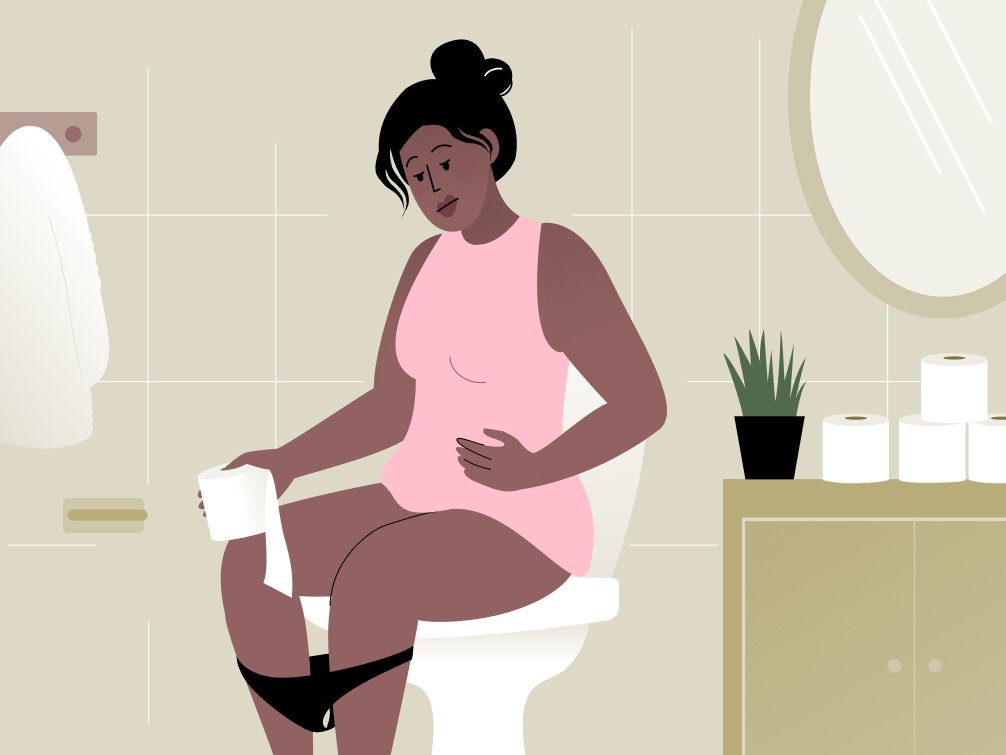Have you ever noticed changes in your bowel habits during your period? You’re not alone. Many women see more bowel movements or even diarrhea during their periods. But why does this happen? Knowing how your menstrual cycle affects your digestive system can help you manage these changes better.

The menstrual cycle affects every woman differently, with a wide range of changes and symptoms experienced throughout the month. While most people are aware of the physical effects such as cramps, bloating, and fatigue, there is one aspect that often goes overlooked: increased bowel movement during periods. Yes, you read that correctly.
Many women experience changes in their digestion and find themselves making more trips to the bathroom during menstruation. So, what exactly causes this phenomenon, and how can we understand and manage it?
In this article, we will explore the reasons behind increased bowel movement during periods and discuss some tips to help you navigate through this often uncomfortable aspect of the menstrual cycle.
Key Takeaways
- Hormonal changes during your cycle can affect your digestion, leading to more bowel movements or diarrhea.
- Prostaglandins, released during menstruation, cause uterine contractions and affect the intestines, leading to cramps and diarrhea.
- Staying hydrated, using heating pads, and avoiding certain foods can help with bowel movements during your period.
- If digestive issues during your period don’t go away or get worse, see a healthcare provider.
- Talking to your doctor can help find the cause and create a plan to manage it.
Understanding the Connection Between Menstrual Cycles and Bowel Habits
Your menstrual cycle and bowel habits are more connected than you might think. Hormonal changes during your cycle affect your digestive system. This can lead to more bowel movements or diarrhea during your period.
Hormonal Fluctuations and Their Impact on Digestion
Your hormone levels, especially progesterone, change during your menstrual cycle. In the luteal phase, before your period, progesterone levels go up. This increase can slow down your digestive system, causing constipation or bloating.
When your period starts, progesterone levels drop fast. This drop can cause more bowel movements or diarrhea. The hormonal changes can also make you feel crampy, which can affect your bowel habits too.

Prostaglandins: The Culprit Behind Period Cramps and Diarrhea
Prostaglandins also play a role in your bowel habits during your period. These compounds help with menstrual cramps by causing uterine contractions.
Prostaglandins can also make your intestines work harder. This can lead to more bowel movements and even diarrhea. So, many people feel menstrual cramps and bowel movements at the same time during their period.
| Phase of Menstrual Cycle | Hormonal Changes | Impact on Digestion |
|---|---|---|
| Luteal Phase | Progesterone levels rise | Slower digestion, constipation, bloating |
| Menstrual Phase | Progesterone levels drop rapidly | Increased bowel movements, diarrhea |
A graphic representation of a woman’s abdominal area with colorful geometric shapes overlaid to represent the fluctuations of hormones and how they affect bowel habits during menstrual cycles.
“The hormonal changes during your menstrual cycle can significantly impact your digestive system, leading to increased bowel movements or even diarrhea.”
Increased Bowel Movement During Periods: Causes and Triggers
Have you noticed your bowel movements changing during your period? You’re not the only one. Hormonal changes and your digestive system work together to cause this. Prostaglandins, hormone-like substances, are the main cause. They make your uterus and intestines contract, leading to cramps and diarrhea.
Stress can make digestive issues worse during your period. When stressed, your body releases cortisol, a hormone that affects your gut. This can lead to loose stools or constipation. Foods high in fat or fiber can also make you go to the bathroom more often.
To manage your menstrual digestive issues, try stress-reducing activities like mindfulness or gentle exercise. Also, eat foods that are easy to digest and high in fiber. These can help keep your bowel movements regular and reduce discomfort. With these steps, you can feel better and keep your digestive system healthy during your period.

FAQ
Why do I experience increased bowel movements during my periods?
Hormone changes, especially a drop in progesterone, make your digestive system more sensitive. This can cause more bowel movements, diarrhea, or constipation for some.
How are menstrual cramps related to bowel movements?
The same hormones that cause cramps can also affect your intestines. This can lead to diarrhea or more bowel movements during your period. Many people experience this.
Is it normal to have diarrhea or constipation during my period?
Yes, it’s common to see changes in bowel habits during your cycle. You might have diarrhea or constipation, depending on you and your cycle stage. If the changes aren’t severe or long-lasting, they’re usually okay.
What can I do to manage increased bowel movements during my period?
To manage bowel movements during your period, stay hydrated and eat fiber-rich foods. Avoid certain foods and manage stress. Over-the-counter meds like ibuprofen or anti-diarrheals can help. If the issues are severe or don’t go away, see your healthcare provider.
How do hormonal birth control methods affect bowel habits during the menstrual cycle?
Hormonal birth control, like the pill, patch, or ring, can help control your cycle and lessen digestive issues like diarrhea or constipation. Yet, some people might still have bowel problems, even with these methods.
